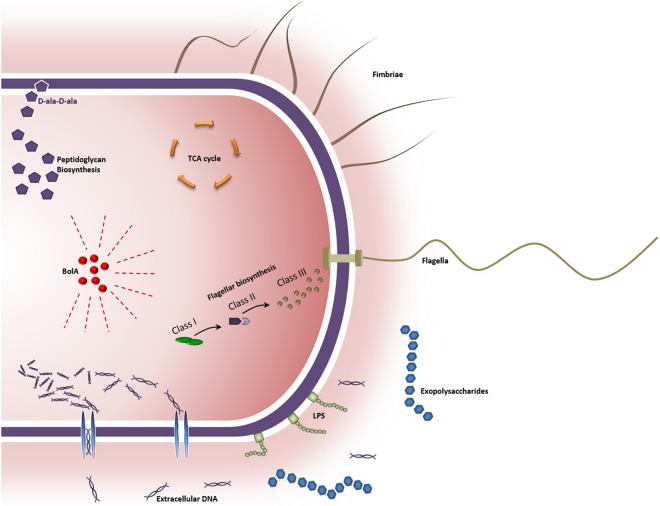FIG 6 .
Model for BolA-mediated regulation of planktonic-to-sessile transition-related mechanisms in Escherichia coli. BolA is a global regulator which has a major direct effect in bacterial motility through the repression of flagellum-associated genes and the induction of tricarboxylic acid (TCA) cycle genes. It modulates the regulation of several carbon metabolism pathways connected to peptidoglycan biosynthesis. Biofilm formation is favored by BolA mainly through the differential regulation of genes involved in lipopolysaccharide (LPS) and cellulose production. The presence of elevated levels of extracellular DNA, proteins, and sugars emphasizes the role of this protein in the production of an extracellular matrix necessary for biofilm development. Concordantly, BolA induction has a positive effect in the expression of several genes encoding fimbria-like adhesins, which are possibly involved in the formation of the three-dimensional structure of biofilms.

